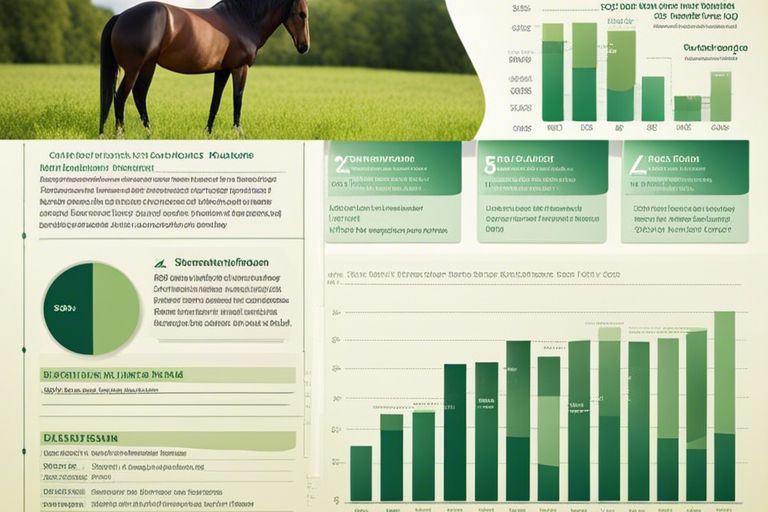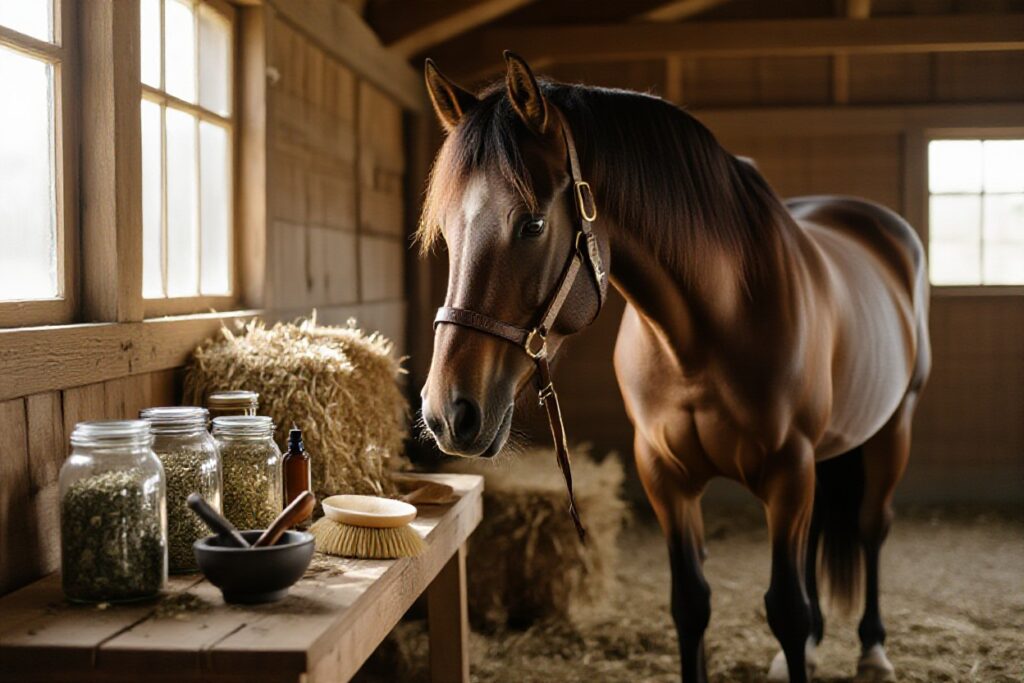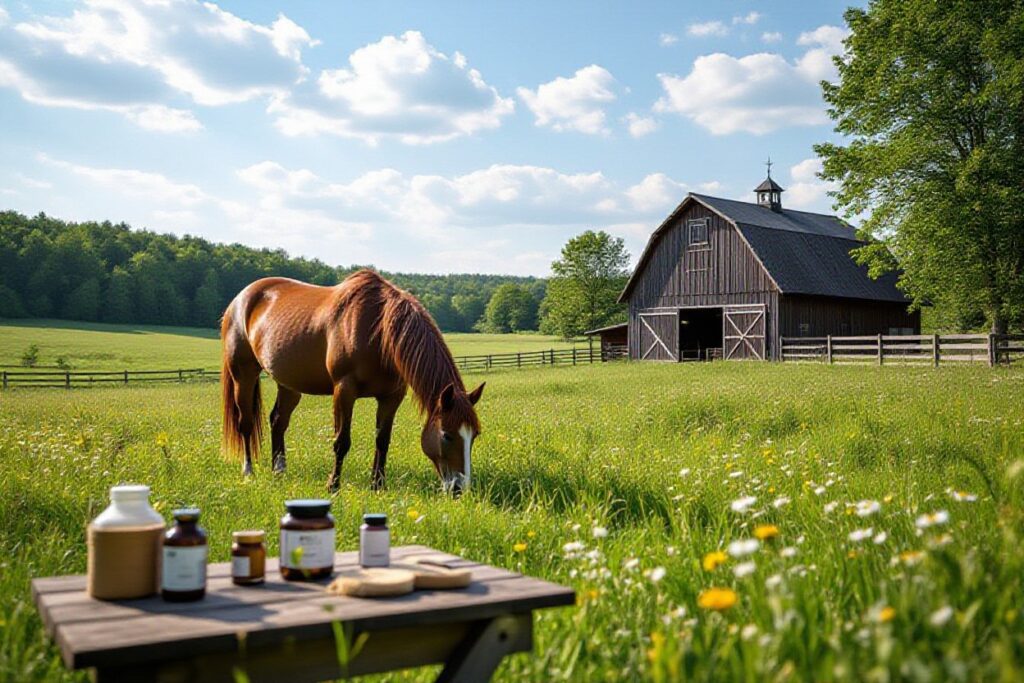It’s no secret that proper nutrition plays a vital role in maintaining your horse’s digestive health. Just like humans, horses rely on a well-balanced diet to ensure their digestive system functions optimally. From the quality and quantity of forage to the type of concentrates they consume, every aspect of their diet can impact their overall well-being. In this blog post, we will explore the importance of nutrition in supporting your horse’s digestive health and offer tips on how you can improve their diet to promote a healthy gut.

Fundamental Nutrients for Equine Digestive Health
The role of fibers in a horse’s diet
Before we explore into the necessary nutrients that support your horse’s digestive health, it is crucial to understand the role of fibers in their diet. Fibers are necessary for maintaining a healthy digestive system in horses. They are a primary source of energy and help regulate the digestive process by promoting proper gut motility and microbial fermentation.
Essential vitamins and minerals
Any well-balanced equine diet should include a variety of necessary vitamins and minerals to support overall health and well-being. These micronutrients play crucial roles in various physiological functions, such as immune function, bone development, and muscle function.
Fundamental to equine health are key vitamins like vitamin E, which acts as an antioxidant, and minerals like calcium and phosphorus, vital for bone strength and metabolism. Ensuring your horse receives adequate amounts of these nutrients through their diet is necessary for optimal digestive health and overall performance.
To ensure your horse’s digestive health remains optimal, it is crucial to tailor their diet to include a diverse range of fibers, vitamins, and minerals. Consulting with a veterinarian or equine nutritionist can help you create a well-balanced diet that meets your horse’s specific needs and supports their digestive system for long-term health and vitality.
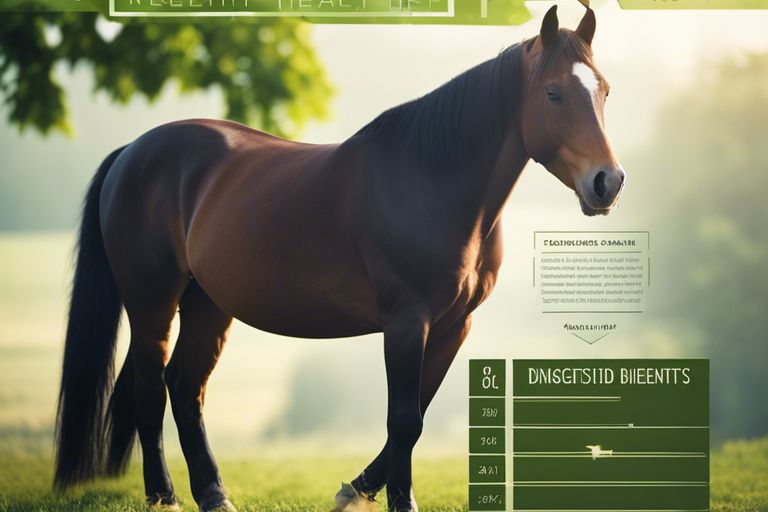
Feeding Practices for Optimal Digestion
Understanding feeding frequencies and portion sizes
Even the most well-balanced diet can be rendered ineffective if not fed in the right amounts at the right times. With horses, a key factor in maintaining optimal digestion is understanding feeding frequencies and portion sizes. Horses are natural grazers, and their digestive systems are designed to process small amounts of food consistently throughout the day.
The impact of forage quality on digestion
Even with the right feeding frequencies and portion sizes, the quality of forage plays a crucial role in a horse’s digestive health. High-quality forage, such as fresh, leafy hay, provides imperative nutrients and promotes a healthy gut environment. Poor-quality forage can lead to digestive issues and nutrient deficiencies, impacting overall health and performance.
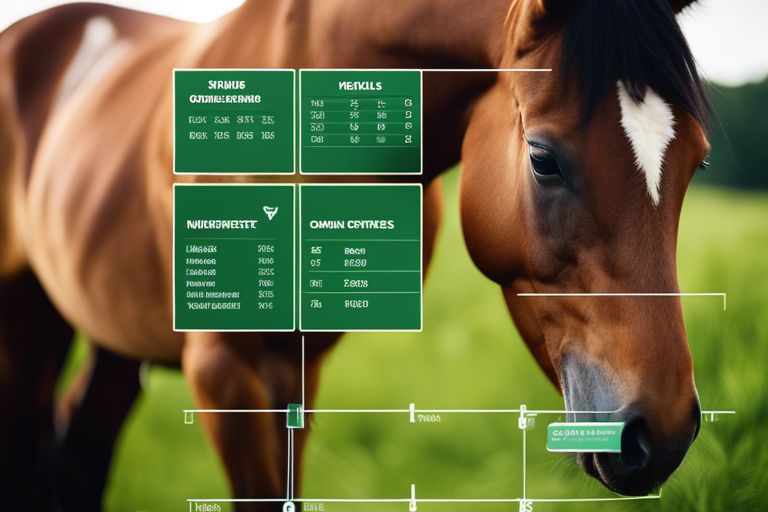
Recognizing and Addressing Digestive Disorders
Once again, the key to maintaining your horse’s digestive health lies in recognizing and addressing any potential disorders early on. By understanding common equine digestive issues and implementing nutrition-based solutions, you can help prevent serious health problems and ensure your horse’s well-being.
Common equine digestive issues and their symptoms
With various digestive disorders that can affect horses, it is imperative for horse owners to be aware of the potential signs. Symptoms such as colic, diarrhea, weight loss, and changes in appetite can indicate underlying digestive issues that need to be addressed promptly to avoid further complications.
Nutrition-based solutions for digestive problems
With proper nutrition, you can significantly impact your horse’s digestive health and prevent common issues. By providing a balanced diet, ensuring access to fresh water at all times, and incorporating high-quality forage, you can support your horse’s digestive system and promote overall well-being.
Common nutrition-based solutions for digestive problems include introducing probiotics to promote healthy gut bacteria, feeding smaller, more frequent meals to aid digestion, and avoiding sudden changes in diet that can disrupt the digestive tract. Consulting with a veterinarian or equine nutritionist can help tailor a nutrition plan to address your horse’s specific digestive needs.
Diet Adaptation and Monitoring
How to introduce new feeds safely
Adaptation: Your horse’s digestive system is sensitive to sudden changes in diet. When introducing new feeds, it is crucial to do so gradually to allow your horse’s gut flora to adjust. Start by mixing small amounts of the new feed with their current feed and slowly increase the ratio over 7-10 days until the transition is complete. This method will help prevent digestive upsets such as colic or diarrhea.
Tracking your horse’s digestive health over time
Monitoring: Horses can’t communicate when they are experiencing digestive issues, so it’s crucial for horse owners to track their horse’s digestive health over time. Keep a detailed record of their feeding schedule, behavior, and any changes in manure consistency. Consult with a veterinarian or equine nutritionist if you notice any abnormalities to address them promptly and avoid potential health issues.
Monitoring your horse’s digestive health is key to ensuring their overall well-being and performance. By being proactive and observant of their digestive patterns, you can catch any issues early and make necessary adjustments to their diet or management practices.
To wrap up
So, improving your horse’s digestive health through nutrition is crucial for their overall well-being and performance. By providing a balanced diet, ensuring access to fresh water, and incorporating forage and supplements as needed, you can support your horse’s digestive system and help prevent issues such as colic or ulcers. Remember to consult with a veterinarian or equine nutritionist to tailor a diet that meets your horse’s specific needs and monitor their digestive health regularly. With the right nutritional approach, you can help your horse thrive and enjoy a healthy life.
FAQ
Q: Why is digestive health important for horses?
A: Digestive health is vital for horses as the digestive system plays a crucial role in nutrient absorption, overall health, and performance. A healthy digestive system ensures that horses can efficiently utilize the nutrients from their feed and maintain optimal well-being.
Q: What are some common digestive issues that horses face?
A: Horses can experience various digestive issues such as colic, ulcers, hindgut acidosis, and gastrointestinal discomfort. These conditions can impact their health, behavior, and performance if not addressed promptly and effectively.
Q: How can nutrition help improve a horse’s digestive health?
A: Proper nutrition is key to promoting good digestive health in horses. Providing a balanced diet with high-quality forage, adequate water intake, and suitable supplements can support digestion, maintain gut health, and prevent digestive disturbances.
Q: What role does forage play in enhancing a horse’s digestive health?
A: Forage, such as hay and pasture, is crucial for promoting optimal digestive function in horses. The fiber content in forage helps regulate the digestive process, stimulate beneficial gut bacteria, and prevent issues like colic and ulcers.
Q: Are there any dietary practices to avoid to maintain good digestive health in horses?
A: It is important to avoid sudden dietary changes, overfeeding concentrates, feeding low-quality forage, and inadequate water intake, as these practices can disrupt the horse’s digestive system and lead to various health issues. Consistency and moderation are key for promoting digestive health in horses.
